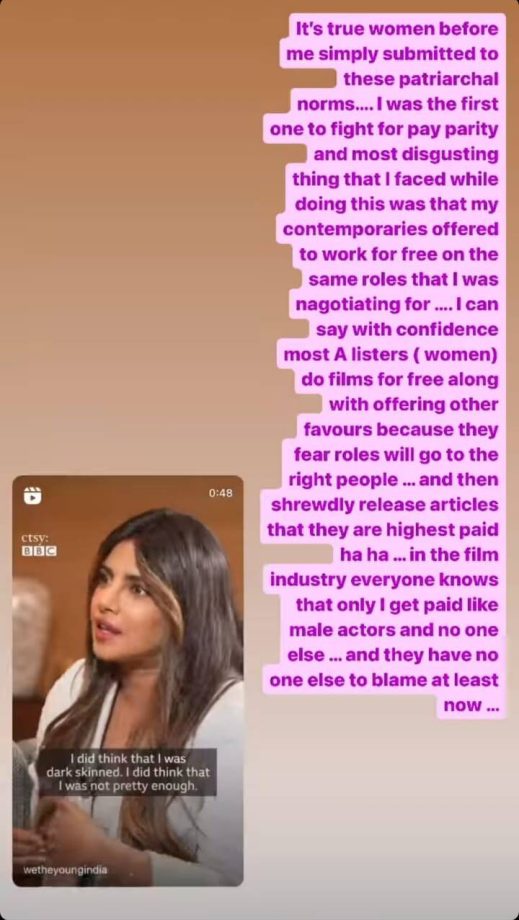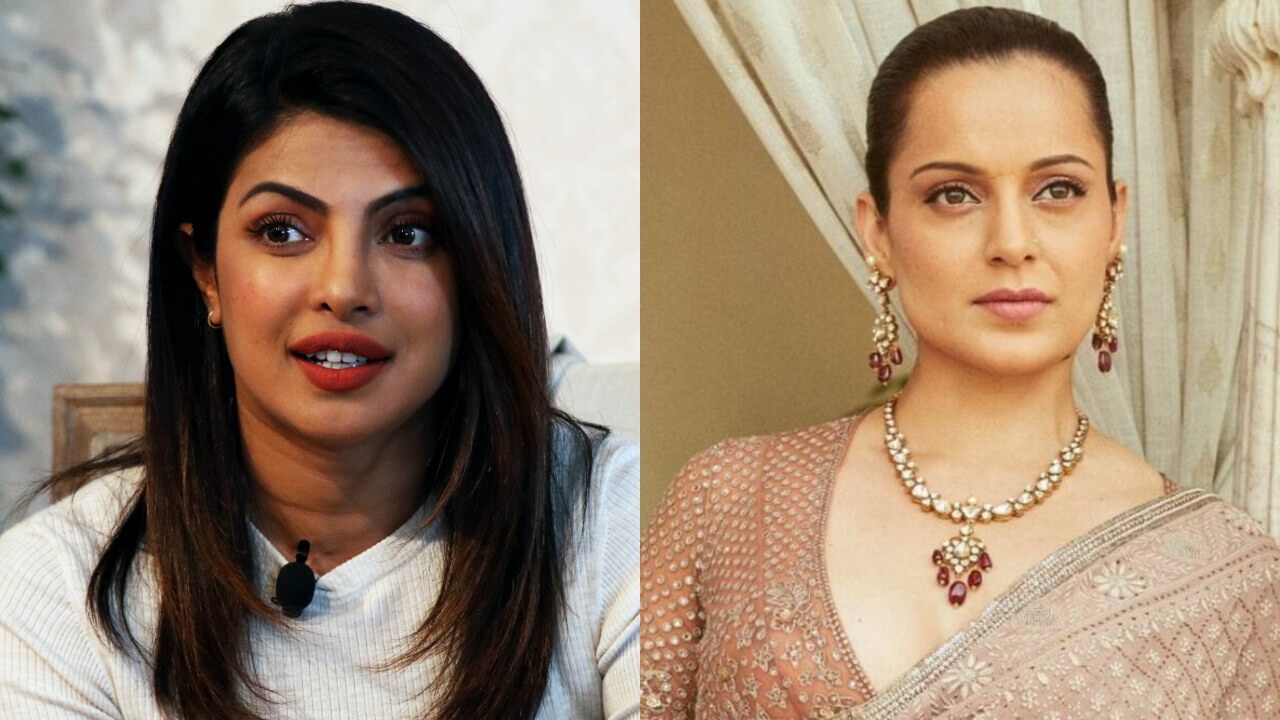Kangana Ranaut, the enigmatic Bollywood actress, has once again ignited a firestorm with her recent claims about the gender pay gap in the film industry. Known for her fearless and outspoken demeanour, Kangana has long been an advocate for change in an industry plagued by nepotism and inequality.
Now, she has taken a bold stance, asserting that she is one of the few actresses who receives pay equal to their male counterparts, while implying that many A-listers willingly work without compensation. Kangana’s bold statements not only highlight her unrelenting determination but also shed light on the pervasive gender disparities that continue to persist in the glitzy world of Bollywood.
Kangana Ranaut’s take on the issue
Sharing the BBC interview of Priyanka Chopra on social media handle, Kangana wrote, “It’s true women before me simply submitted to these patriarchal norms… I was the first one to fight for pay parity and the most disgusting thing that I faced while doing this was that my contemporaries offered to work for free on the same roles that I was negotiating for… I can say with confidence most A-listers (women) do films for free along with offering other favours because they fear roles will go to the right people… and then shrewdly release articles that they are the highest paid, haha… in the film industry everyone knows that only I get paid like male actors and no one else… and they have no one else to blame at least now,”
Here take a look at the post:

Priyanka Chopra on pay-gap and more
In the interview video we can hear Priyanka talking about the pay-gap. She said, “I have never had pay parity in Bollywood. I have done almost 60 movies there, but I have never got paid the same amount as my male co-actor. I would get paid about 10 per cent of my male co-actor. It (the pay gap) is substantially large and so many girls still deal with that.” She added, “I did think that I was dark-skinned. I did think that I was not pretty enough. I did think that I would have to work a lot harder even though I was probably a little bit more talented than my co-actors who were lighter-skinned. I thought that was right because it was so normalised. I think, as I grew up, I saw things in my career that I didn’t even know were right or wrong and I had to be educated and learn along the way,” as quoted by The Indian Express.

